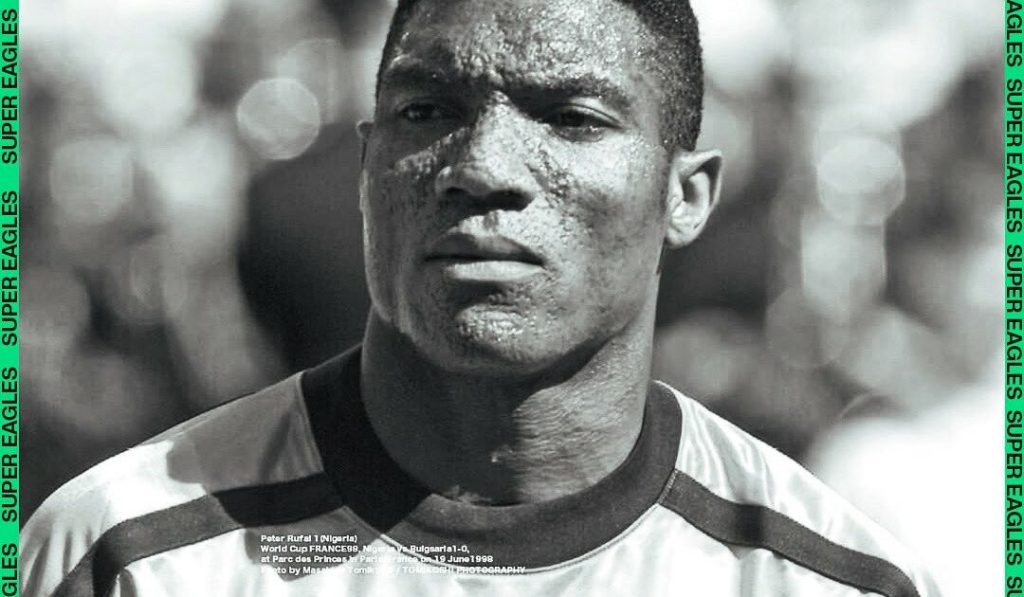Peter Rufai, the iconic Nigerian goalkeeper and 1994 AFCON winner, passed away at the age of 61 after a brief illness, plunging the Nigerian football community into mourning. His death, which occurred in Lagos, was confirmed by former Nigerian midfielder Waidi Akanni, who stated that Rufai’s body had been deposited at a local hospital. The Nigeria Football Federation (NFF) paid tribute to Rufai, hailing him as a “giant of Nigerian football” and one of the country’s most iconic players. The NFF expressed their condolences on social media, referring to him by his popular nickname, “Dodo Mayana,” and acknowledging his enduring legacy within the sport.
Reactions to Rufai’s passing poured in from across the football world. Former Super Eagles captain Segun Odegbami expressed his shock and sadness, revealing that while he was aware of Rufai’s illness, the news of his death was unexpected. Etim Esin, another former teammate, shared his devastation, recalling their time playing together and lamenting the loss of a great figure. Dele Aiyenugba, a fellow ex-Super Eagles goalkeeper, expressed his respect for Rufai, acknowledging him as a role model and an inspiration. Current Super Eagles captain Ahmed Musa echoed the sentiment, emphasizing Rufai’s heroic performances and the enduring legacy he leaves behind.
Clubs and dignitaries also joined the chorus of tributes. Remo Stars, the reigning Nigeria Premier Football League champions, extended their condolences to Rufai’s family and the wider football community. Former Vice President Atiku Abubakar mourned the passing of the “legendary national team goalkeeper,” highlighting his significant contributions to the global football community and expressing his profound sorrow. These tributes from across the spectrum of Nigerian society underscored Rufai’s impact, extending beyond the realm of sports and into the national consciousness.
Rufai’s illustrious career began with his debut for the then Green Eagles in a friendly match in December 1981. He subsequently played a pivotal role in Nigeria’s AFCON campaigns, winning silver medals in 1984 and 1988 before achieving ultimate glory in Tunisia in 1994. He was the undisputed first-choice goalkeeper in all three tournaments. Beyond the continental stage, Rufai represented Nigeria in the 1994 and 1998 FIFA World Cups, where the Super Eagles reached the round of 16 on both occasions. After retiring from professional football, he dedicated his time to nurturing young talent, serving as a mentor and even coordinating the Nigeria U-23 team.
Rufai’s club career was equally impressive, marked by his time at Stationery Stores in Lagos, where he led the team to the final of the Africa Cup Winners Cup in 1981. His European journey included stints with Lokeren and Beveren in Belgium, Go Ahead Eagles in the Netherlands, Deportivo La Coruna and Hercules in Spain, and Farense and Gil Vicente in Portugal. These experiences not only enriched his playing career but also exposed him to diverse footballing cultures, shaping his understanding of the game and contributing to his development as a well-rounded goalkeeper.
Peter Rufai’s legacy extends beyond his achievements on the field. His nickname, “Dodo Mayana,” became synonymous with his commanding presence in the goalpost and his courageous performances. He inspired a generation of aspiring goalkeepers, setting a high standard for excellence and dedication to the sport. His contributions to Nigerian football, both as a player and a mentor, are undeniable and will forever be etched in the annals of the nation’s sporting history. His commitment to nurturing young talent ensured that his influence extended beyond his playing days, leaving a lasting impact on the future of Nigerian football.


